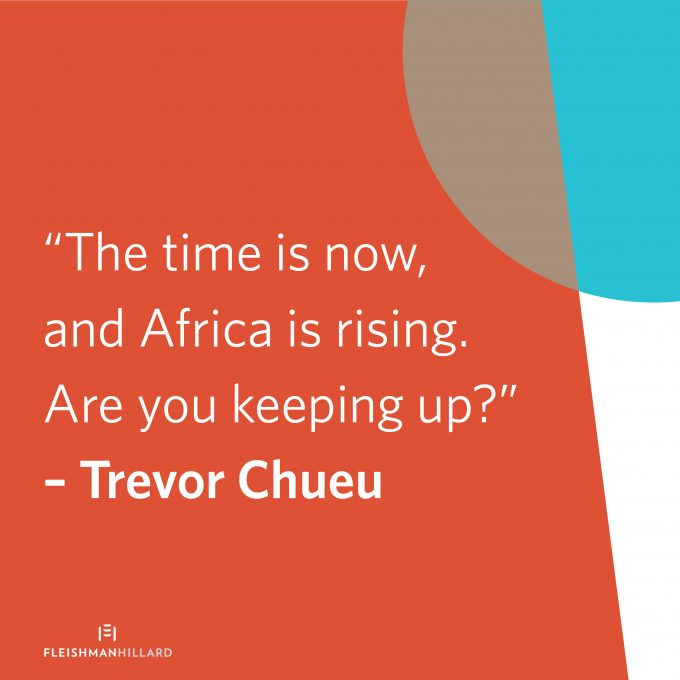Adapt or die: brands and cultural diversity across Africa
 A one-size-fits-all approach to marketing communications does not work in Africa, or any of its 54 countries.
A one-size-fits-all approach to marketing communications does not work in Africa, or any of its 54 countries.
Yes, there is a huge sense of optimism around Africa, and we continue to find our voice, but to build on and harness the massive progress we have already made, there is a real need for African-born creativity to be recognised and respected by an international community.
This means that when businesses from beyond African borders plan to launch a new brand – and a communications strategy around it – they have to recognise and work with the cultural nuances and evolutions of the particular country they are entering.
In short, a brand entering Africa needs to listen first, and speak later. Producing the right content with a narrative true to the African consumer, and then the company, is key. And when brands get it right on the ground, the results are beyond inspiring.
We continue to see beautiful communication campaigns emerge from various African markets, rich with local insights and built on unique content and partnerships that speak to the native audience using their semantics, on their terms, about their concerns.
The visual language a brand employs is just as important, and partnering with local art directors, photographers, designers and artists with a trained eye is imperative to aesthetically interpreting the brand in the market, and across various platforms.
“Adapt or die” seems to be the communications aphorism most true to today’s Africa. A brand’s reputation and positioning in Africa is completely reliant on immersing the communication strategy in the consumer culture and buying behaviour of the people in the country, and only by understanding their pain points and pressures can brands confidently accelerate their efforts for growth within the continent.
As a strategic communications firm that counsels multinationals both in South Africa, and those with specific interest in the rest of the continent, we at FleishmanHillard believe that a strong brand launch in a new African market remains heavily reliant on smart communications support, to provide insights about the market landscape, and to build and protect the company’s reputation as it navigates uncharted waters.
If we look at brands that have succeeded in responding to market nuances, Shoprite stands out as a good example – in the process of expanding its footprint, the retailer managed to build its name as an organisation that knows and cares about the communities it operates in.
The company moved north, from South Africa, on a journey to champion food security for a number of African countries. Its first store in Lusaka, Zambia imported all merchandise including fresh produce when it opened. Locals in the country were outraged, and the company responded by changing its supply chain and distribution strategy by developing local suppliers of fresh goods where possible. Now, approximately 80% of the goods on Shoprite’s African shelves come from local sources.
There is no doubt that Shoprite had to communicate with the Zambian farmers, in some shape or form, to make them aware of this operational change. This could have been through a targeted stakeholder management process or mass reach programme via the media and social platforms. Ultimately, communications initiatives have meant that the locals know this, and by supporting the overall business objectives has been able to drive market share.
Not all brands making the move are as fortunate as Shoprite, though, and the challenge typically lies in the organisation’s approach when it enters its African market of choice. Not adequately researching and respecting the local landscape is the biggest cause of failure, so brands looking to move into an African market need to ensure that their expansion plans and associated communications strategies truly tap into the realities of where they are moving into.
The time is now, and Africa is rising. Are you keeping up?
Find Out More
-
Digital Insights Bulletin - October 2024
October 31, 2024
-
Sharon Piehl Wins 32nd Annual John D. Graham Award for Excellence
October 25, 2024
-
Digital Insights Bulletin - September 2024
September 30, 2024


